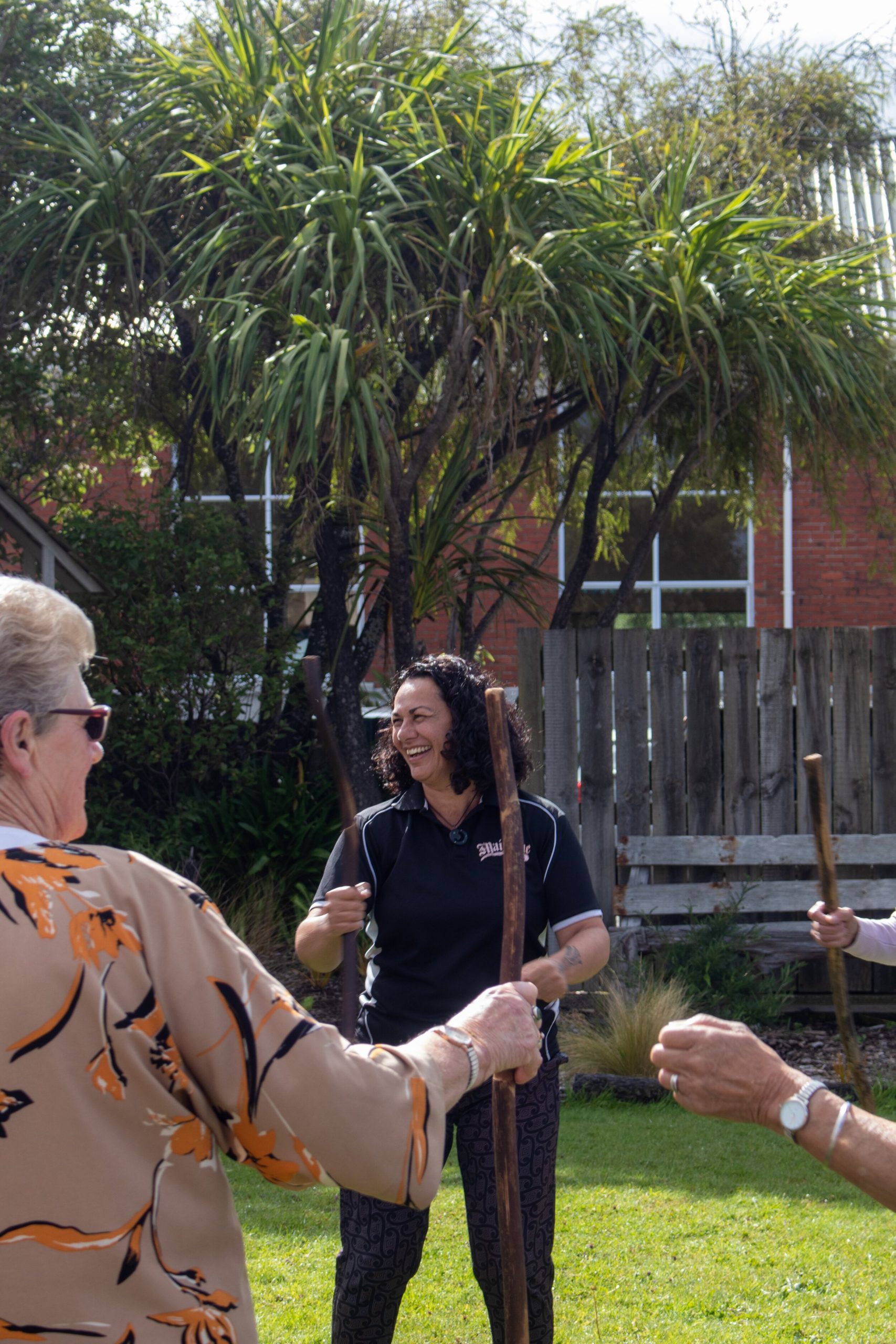LOGIN:
After years of working in kaupapa Māori health services, Murihiku entrepreneur Joyce Manahi launched her own holistic health service MAI TIME in 2018 to create a pathway for whānau to increase their physical fitness while strengthening their cultural connection.
MAI TIME began as a service that encouraged whānau to stay active and connect with their tīpuna by playing taonga tākaro like whanawhana, ki-o-rahi, poi toa and mahi rākau – Joyce’s own take on mau rākau using the kōrari from harakeke.
“We wanted to make it fun, and to use the reo while doing some exercise at the same time,” Joyce says.
She also teaches kahu huruhuru and korowai, and over the years has seen the benefits not only of reconnecting whānau to this taonga practice, but in reducing stress and anxiety.
“We wanted to make it fun, and to use the reo while doing some exercise at the same time,”

For kaumātua, Joyce created Ka Tū Au, a completely unique programme delivered in te reo Māori that blends tai chi, qigong and yoga with karakia and whakataukī. “Whānau love it! When you get to that kaumātua status, they say it’s the relationships and coming together that are the most important,” Joyce says. “Yes, there are exercise benefits in terms of strengthening and falls prevention, but it’s the social aspects that really strengthens them and keeps them coming back.”
Working with kaumātua inspired Joyce to transition in to mirimiri and rongoā, saying that she wanted to alleviate their aches and pains, and address the side effects of the medications they were taking.
“I saw a need, especially for our kaumātua and our wāhine hapū,” Joyce says. “I was working full time but the more I started doing mirimiri and mahi a wairua, the more it became my priority.”
In 2020, MAI TIME added another service to their kete in response to a shortage of carers following COVID-19. “Many of our whānau with multiple health needs wanted help with personal day-to-day care – anything from preparing kai, getting them out of bed, showering or just doing their housework,” says Joyce. “So now we have a home support team – I call it mahi kāinga – and a tāne team of mainly young men who are doing outdoor work for our kaumātua.”
Funding and mentorship from Te Pūtahitanga o Te Waipounamu has enabled Joyceto grow MAI TIME, offering her team’s services to more whānau members and providing employment opportunities.
“We do a lot of this mahi for aroha, but the funding from Te Pūtahitanga has enabled me to support whānau, some of whom have been out of work for many years,” Joyce says. “They are so appreciative that I can offer them a little bit of koha and a reason to get out of the house and do something to support our whānau – and it just fills my ngākau.”
Today, MAI TIME employs people across three locations in Murihiku and Ōtautahi. It is an accredited ACC vendor, meaning that whānau with injuries can access mirimiri to support their rehabilitation, and a WINZ supplier.
For Joyce, the success of MAI TIME comes down the fact that it is a kaupapa Māori whānau business. “MAI TIME is a real family business. I say to our clients, ‘by working with you, you become part of our whānau, and we become part of yours.’”